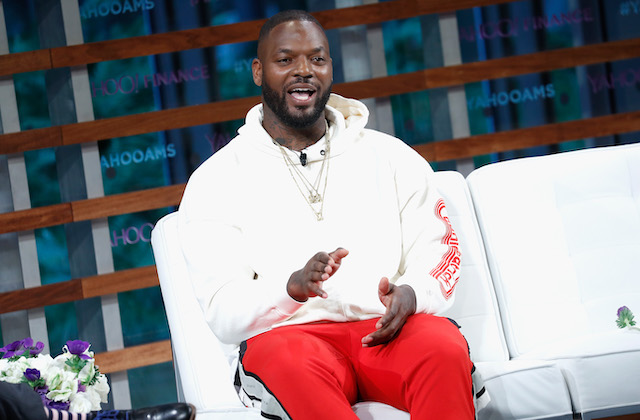This Sunday’s (February 3) Super Bowl LIII wraps yet another National Football League (NFL) season without Colin Kaepernick. His continued lack of employment on an NFL roster, combined with the league’s treatment of players protesting police violence, reflect a broader sports culture that devalues the rights and values of Black athletes. As Martellus Bennett writes for The Washington Post today (February 1), the underlying racism stretches past the NFL and into the DNA of youth sports—especially for Black boys turned into men like he and his brother Michael.
rnt
We were Black boys. And to be born a Black boy is to be born into athletics. Black fathers are often disappointed if their sons aren’t good at sports. Not excelling at sports as a Black boy meant not being cool—even weirder, it meant not really being Black. When you’re growing up as a Black boy, it feels like the world tosses you a ball and says, Good luck. Go get ’em, Champ.
Bennett retired from the NFL and now runs The Imagination Agency, a creative company specializing in animation and illustration. He argues for a society that values Black boys’ contributions off the field and supports their personal and creative growth:
rnt
No one ever told us about all of the other possibilities the world offered. No one ever made us feel that we could achieve anything and everything we dreamed of. The NFL is nearly 70 percent Black, so we knew we belonged there. But the tech industry is less than 8 percent Black, so we didn’t really feel like that was for us. Only 6 percent of doctors are Black. Only 2 percent of teachers are Black men. There are only three Black CEOs in the Fortune 500. Black directors made only 5 percent of Hollywood’s biggest movies in the past decade. Those worlds look mostly White, because they are.
t
There just aren’t that many heroes who look like we do outside of sports. We shouldn’t have to imagine being “the Black Walt Disney” or “the Black Steven Spielberg” to think about going into movies, “the Black Steve Jobs” or “the Black Bill Gates” to dream of being high-tech innovators, or “the Black Stan Lee” to picture ourselves as comic book writers.
t
We can begin to change that—not just by integrating those mostly White realms, but also by allowing Black boys the space to dream differently. Accept them for who they show you that they really are. When you look at Black boys, see them as the future writers, composers, chefs, tech moguls, presidents, film directors, architects, illustrators or fashion designers that they are. The world is more beautiful when we let Black boys dream big.
Read the full essay, complete with Bennett’s own illustrations, at WashingtonPost.com.
